Graham Linehan on how transgender, culture wars cancelled his career
He gave the world Father Ted, Black Books and The IT Crowd. But then Graham Linehan waded into the culture wars – and copped a cancelling like no other.
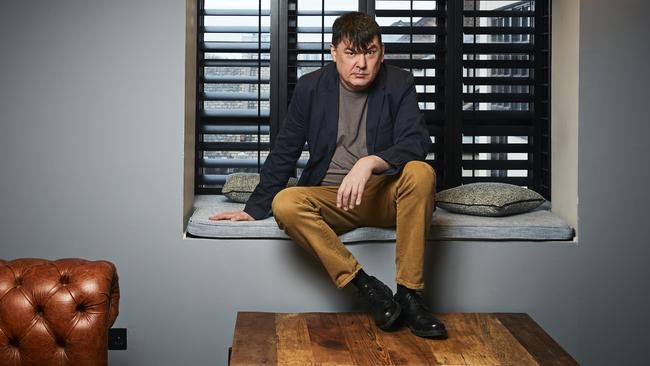
A few minutes before Graham Linehan performs at the Backyard Comedy Club, a young man in a blue jumper marked “Security” scans the crowd looking for trouble. Security is apparently quite usual here, but the club is wise to take no chances. The 54-year-old Irish writer, co-creator of the benignly mad sitcom Father Ted, has become a bitterly divisive figure, adored, pitied and also much hated. The comedy legend’s scathing contributions to society’s unhappy conversation about transgenderism have led to a showbusiness exile that would be total but for this club in east London one Tuesday night in February.
The security guy must be relieved. This audience looks well up for what is billed as an evening of free-thinking comedy. Much of it is middle-aged, much of it female. One woman wears a T-shirt with the slogan “Woman = adult human female”, a common riposte by “gender-critical” lesbians to trans women who insist they are indeed women (although legally, of course, they can be).
When he ambles on for his 10-minute set, Linehan claims he did his last stand-up when he was 19. He had hoped to make his comeback some place no one knew him. Alas, the gig was advertised and everyone tonight knows who he is. We are mostly, he guesses, “Terfs”, trans-exclusionary radical feminists – that is, feminists who do not count transitioned men as women, which he certainly doesn’t. He looks nervous and his hands shake, but his set is not contentious. He jokes about his weight and his fear of making out-of-date cultural references. The laughs come. There is love for him. Winding up, he says when he arrived a woman thanked him for the sacrifice he had made. She is right, he says in a final half-gag. “I’ve lost many things – my marriage, my career – but at least I’m playing this shitty club in Bethnal Green.”
Although the trans wars have claimed many jobs, friendships, families and, some claim, lives, the damage it has inflicted on Linehan is huge. In television he was rightly regarded as a genius with three classic sitcoms to his name: Father Ted in 1995, set in priests’ lodgings on a backward Irish island; 2000’s Black Books, starring co-creator Dylan Moran and Bill Bailey as booksellers; and in 2006 The IT Crowd, about a corporation’s tech nerds. His work is absurdist, character-driven and taboo-teasing but ultimately generous about humanity – and hilarious. Yet now he has virtually no income, no television career and has lost his old media friends. What he regarded as his pension, a Father Ted musical, is unlikely ever to be performed, at least not in his lifetime. “I think,” he says, “they’re waiting for me to die.”
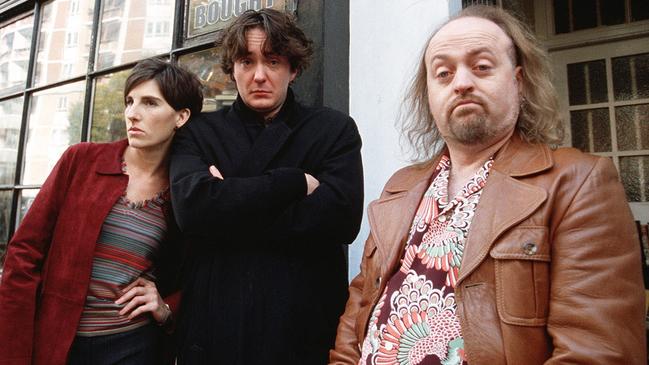
The cancelling began, he calculates, after a cancer operation when he woozily tweeted about transgender people. He cannot remember what he wrote, but it was probably in line with the thousands he has written since, tweets that have ensured he is too toxic to work in today’s “liberal” media and showbusiness. Even if he does turn out to be on the wrong side of history, as the hostile clairvoyants forecast, to lose so much seems a disproportionate punishment. And many, probably including most of his 555,000 Twitter followers, think he will emerge on history’s winning side. It is argued that real cancellation in our supposed cancel culture is rare: commentators from Jeremy Clarkson to Ricky Gervais make good money from saying the allegedly unsayable. Linehan’s cancellation, however, looks real to me.
“I did it for my wife and daughter, even though we broke up,” he tells me. “I did it for them and I’d do it again. I don’t think I’d have been doing my job as a father if I hadn’t been fighting against this stuff. I don’t want my daughter to go into college and have a male-bodied person whose story she doesn’t know in the toilet with her. She cannot object to it, so I had to take that fight on for her.”
We have met one morning near his flat in Docklands, east London. In a cafe, I order two coffees and a small pastry for him. Linehan is warm, eloquent and funny, but his hands are shaking again; he has been on anti-anxiety drugs for five or six years, ever since the first legal threats from trans rights activists.
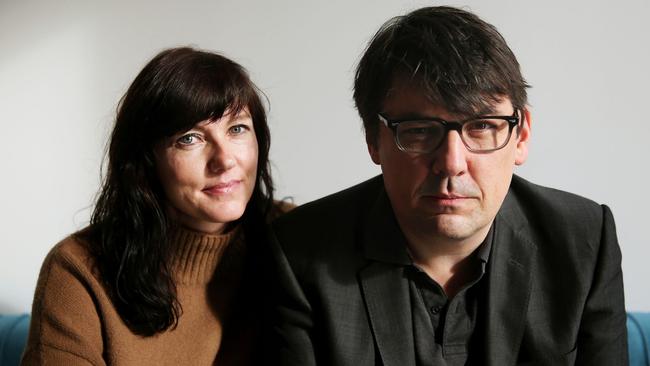
In 2018, police came to his door to warn him not to contact a pro-trans GP, Adrian Harrop, whom Linehan had dubbed “Doctor Do Much Harm”. (A Medical Practitioners Tribunal in 2021 suspended Harrop for a month for offensive tweets himself.) In 2020, Linehan’s 16-year marriage to the comedy writer Helen Serafinowicz, with whom he also has a son, ended as a direct result of his trans battles, he says. He moved out of the family home in Norwich and eventually relocated to London. His wife’s address was nevertheless released online. “She was scared. She was justifiably scared. They started to target her. They started to target her family. It just got too much for her.
“When you’re under constant stress because of legal things, because of money, because of the police coming to the door, then all those tiny little problems that you have in a relationship are amplified.”
He takes issue with me when I suggest that he does not like trans people. “Trans is so loosely defined. It seems to cover both Eddie Izzard and a 16-year-old girl who’s got dysphoria,” he says. “There’s got to be an understanding of the difference between a transsexual who has been through something immense in their lives and someone who’s putting on black fingernail polish and trying to get into the ladies’.” So does he object to an adult man calling himself a woman? “No, not at all. As we keep pointing out, we are only talking about places where conflict arises. My point has never changed. It’s about women in prison, women in rape crisis centres, women in changing rooms. It’s about children. It’s about homophobia. It’s about an incredible new form of sexism that I think is the worst ever. I’ve never seen anything like it. I’ve never seen this kind of hate and aggression towards women.”
Teenagers who believe they have been born in the wrong bodies need help, he agrees, but not the kind provided by the Tavistock clinic’s Gender Identity Development Service, which so frequently simply affirmed their anxieties and led them on the path towards puberty blockers. Allowing adults to call themselves any gender they like, he says, concedes too much ground.
“So until this fight is over, I feel that it’s immoral for me publicly to call trans-identified people [by their choice of pronouns]. My trans friends are all fine with that.”
He has trans friends? “Yes.” Men who are now women? “And women who are men.”
This article is not about the rights and wrongs of transgenderism, but his conversation is understandably studded with instances of the wrongs allegedly committed by trans-rights activists, trans people or men he thinks are pretending to be trans. He sends me the relevant links.
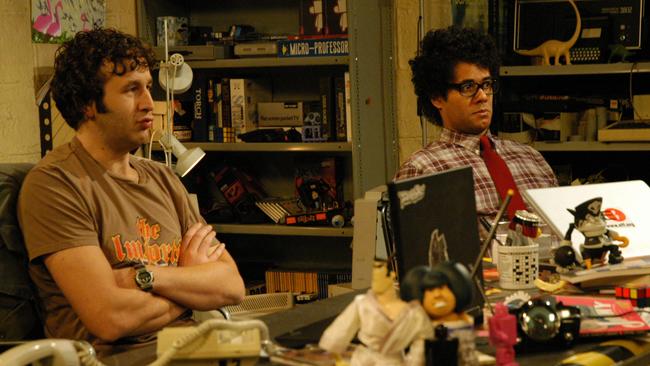
You may not like the withering tone of his Glinner Update on Substack, the subscription newsletter hosting site, but Linehan was once a journalist and it is a well researched and clearly written resource. He knew virtually nothing about this now consuming subject until 2013, the year a 2008 IT Crowd episode featuring a trans subplot was repeated. Removed in 2020 from Channel 4’s list of IT Crowd episodes, it remains on Netflix. It is not his finest 25 minutes, but in quieter times it would be hard to take offence. An attractive actress (Lucy Montgomery) plays the trans woman, so the joke is not that she looks ridiculously fake. On the other hand, beneath the skin she is all male: a beer-drinking, sports-watching bloke who ends up in a physical fight with her dim boyfriend, played by Matt Berry (who now disowns the episode) – so not really a woman. “When it went out, the pushback was so weirdly aggressive that I just thought there was something a bit strange about it. I thought, this is different from usual. So I started paying attention.”
His career continued: a sitcom for the Irish national broadcaster RTE, three series of Count Arthur Strong for the BBC and the pilot and second episode of the BBC hit Motherland, which he co-created with Sharon Horgan, Holly Walsh and his wife. He left, he says, because it would be a “stronger show if the women did it on their own”.
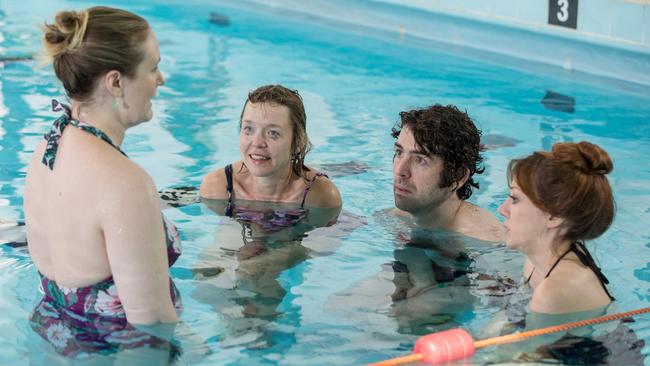
By now, his attention had been caught by the case of Julie Bindel, a feminist campaigner and journalist, who wrote a piece about a trans woman suing a rape crisis centre in Vancouver and was subsequently picketed, blocked, harassed and no-platformed. He felt “Terf” was being used to tag some women as “acceptable targets for violence”.
In 2018 Linehan successfully underwent surgery for testicular cancer. “I think I was actually a bit high from morphine after the operation and I thought, ‘Why am I so nervous about getting involved in this?’ And it was almost instantaneous. The first response I got was from someone saying – and bear in mind I’d just had the operation – ‘I wish the cancer had won’.”
It was at this point that he “jumped in with both feet”. The resulting crash seemed to echo all over social media. In 2020 he was “permanently” suspended from Twitter for allegedly making multiple transphobic comments and was allowed back only after Elon Musk’s takeover last autumn. To give you a measure of what he writes, in recent tweets he has said, “Go f..k yourselves. Women aren’t a costume,” to a tweeter supporting Hershey’s Her for She campaign; called someone a “pronoun wanker”; and described the non-binary pop star Sam Smith as a “masturbating walrus” for appearing in an inflatable latex outfit at the Brit Awards. Here’s one of the milder responses: “You know what’s funny? You used to be ugly and rich and now you’re ugly and broke. Write a comedy about that.”
In 2020 he went on the BBC current affairs program Newsnight hoping to talk about developments in the row over the Tavistock clinic, the closure of which was ordered last year (though currently it remains open). The presenter, Sarah Smith, chose however to focus on his comparisons of drug treatment for transitioning girls with Nazi experiments on children. “They just treated me like I was David Icke [the formers sports presenter who believes the world is run by lizard people]. Yet their own journalists were working on the Tavistock story.”
The offers of work had long since dried up: nothing from television, radio or theatre (his stage adaptation of The Ladykillers received five-star reviews in 2011). His wife asked a comedian friend whether he would like Linehan’s help writing a sitcom and was told exactly what he thought of her husband. A comedy masterclass he was to give in Australia was cancelled. An offer to direct Only Murders in the Building, the Steve Martin series on Disney+, was immediately rescinded.
-
The offers of work had long since dried up: nothing from television, radio or theatre.
-
“I said, ‘Yes, please! Fantastic!’ They were like, ‘We’ll get in touch with your agent. We’ll set it all up.’ Maybe five minutes later, the phone rings again. I pick it up. ‘Oh, I’m sorry, someone else has taken it.’ I know exactly what happened. They went out and they said, ‘Guess what, everyone. We’ve got Graham Linehan.’ And someone, some kooky intern who wears a lot of liner, said, ‘Oh, he’s a bigot.’”
Obviously he has no idea if that is what happened. But something did. And it does not happen to the American comedian Dave Chappelle, whose trans jokes have been defended by Netflix, or to JK Rowling, whose trans-scepticism has not scared off her publisher. Some people are too profitable to be cancelled.
Gradually, his £250,000 insurance payout from his brush with cancer ran out. Today, his only income is from Netflix for The IT Crowd and his Substack subscribers. Out of 16,000, 3000 pay. “If I could get 6000 to pay, I would be OK,” he says. “I thought this would be over in a few months and someone would step in. I really did think as soon as people heard what’s been happening to children, all my friends, satirists, comedians, progressives, people who marched against the Iraq war, lesbians, gay men, they’d all come rushing to my aid. And no one turned up. Just no one turned up. All I got was dirty looks, people ghosting me. I joke that I used to know no one from real life, only people from the media. Now I know no one in the media and I’m friends with social workers and doctors and the Tavistock whistleblowers.”
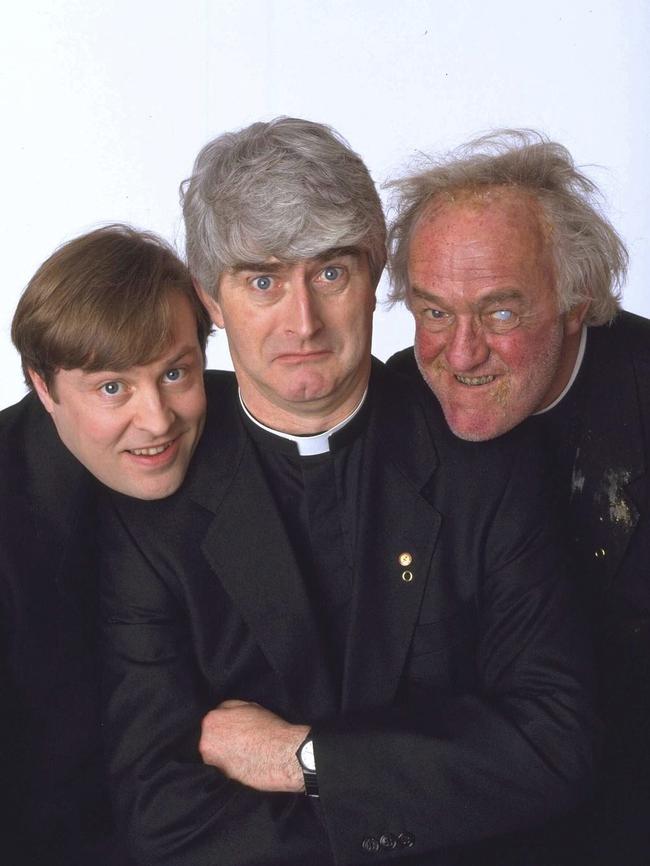
He is angry with the TV host Graham Norton, who last year called cancel culture in reality “accountability culture”. He took it personally because Norton’s career was boosted by appearances on Father Ted (Norton did not answer my request to respond). He is angry with Bill Bailey for saying in a recent interview that Linehan’s trajectory was “baffling” and a “shame because he’s a great comic writer”, but the quote could just as easily mean Bailey was puzzled that Linehan’s career had nosedived in the way it has. “I have met people, people I’ve worked with – big names – and begged them to become involved. Begged them. Please just say, ‘Graham Linehan is right,’ or ‘Graham Linehan has some important contributions to make on this,’ anything that makes it sound as though I’m doing this for anything other than recreational cruelty. That’s how I’m portrayed. Like a recreational sadist. And none of them will stand up for me.”
His enemies are legion. PinkNews has written 80 stories about him, mostly unfriendly. He is being sued by Scottish actor David Paisley, who is claiming Linehan has libelled and harassed him on the web – claims that Linehan denies and is fighting with a crowd-funding campaign. (I approached Paisley for comment but he did not respond.) Other foes are longer-standing: contributors to a website called Cook’d and Bomb’d have been trolling him for 15 years and simply seem not to like him.
What hurts most, however, apart from the end of his marriage, is the cancellation of the Father Ted musical, which he co-wrote with his old writing partner Arthur Matthews and was to have been produced by Hat Trick and Sonia Friedman Productions. His discussions seem mainly to have been with Hat Trick, which had made Father Ted for Channel 4. “They started making noises. ‘You’ve got to stop, get out of this fight,’ and so on. But it was too important. It was about children being hurt, so I couldn’t. And then finally I said to them, ‘Look, you’re asking me not to defend my daughter.’ And I sent an email saying, ‘Really, as colleagues and friends, I’d like you to support me.’ And so they called for a meeting and I went to London and they said, ‘We want you off the show.’ And they offered me £200,000 to walk away from it.”
The offer would have removed his name from the project, save for an acknowledgement that he was co-creator of the original sitcom. When he refused, the show was abandoned. He believes Hat Trick was terrified of its younger members of staff. This is a claim Jimmy Mulville, Hat Trick’s managing director, strongly denies in a phone call to me in which he agrees that, although in need of revision, the show was “really funny” and a “surefire hit” in the West End. He also agrees Linehan was its “linchpin”.
He and his colleagues reached the conclusion, however, that Linehan’s involvement would make the show impossible to stage in the current climate. “I said, ‘We’re not getting at you. We’re trying to save the work and the only way we save the work now is by disassociating it from you, tragic as that is,’” Mulville says. “I know writers really well. It’s hard for writers to do that. And I said it would take an enormous amount of personal courage and humility, but the only way that we go forward is to make a statement. We had statements prepared where we said ‘we believe in Graham’s right to speak his mind and that he’s sincere in his beliefs’.”
But Linehan regarded Father Ted: The Musical as his pension. Mulville says: “That was my expression: ‘This is your pension. I want to make sure that you have this [settlement] because I think you deserve it. What has happened to you has been awful.’
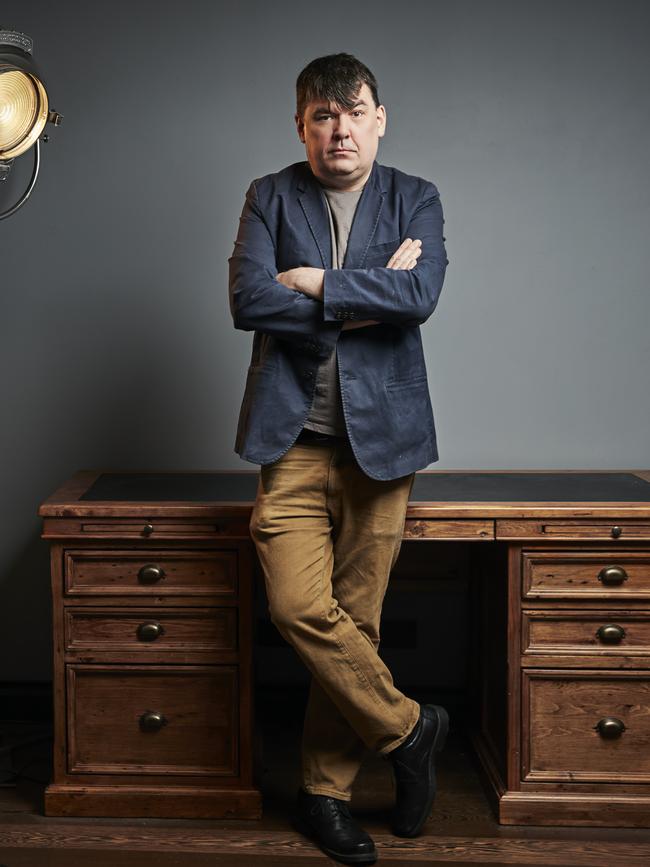
“I don’t believe in the cancel culture. I hate cancel culture. I think it’s non-redemptive. I think people are not given second chances and it’s a horrible aspect of the modern world. But it’s reality. It’s tragic that we live in a world where people are put in these positions, where groups of people don’t want to work with them, but that is the real world. That’s the realpolitik of the whole thing.”
Mulville says he does not think Linehan mad or transphobic, but like many he is concerned by the way he expresses himself. Linehan, for his part, cannot understand people being more shocked by his language than “the coercion of lesbians and the mutilation of gender non-conforming kids”.
One of Linehan’s difficulties, I think, is that he has an immense gift for comedy but in an age that promotes empathy for “victims” to its highest value, his jokes look cruel. Two years ago, for instance, he was called out for joining the lesbian dating app Her. He was not aiming to date anyone, obviously. Rather, on his Substack under the headline “These are not lesbians”, he pictured site-users who looked very much like men and whose motives for joining he thereby impugned as insincere and predatory. Perhaps they were: a user of such apps tells me that she is indeed frequently confronted with “men in unconvincing wigs”. Somehow, however, it sounds better coming from her than him. His view? “Humour is like kryptonite to these people.” And also, “If you remove trans people from humour, you remove them from humanity.”
Many people I speak to about Linehan are concerned for his mental health. The word “obsessive” comes up a lot. I worry myself when he starts talking about how the “lies” told about gender may lead people to doubt vaccines and global warming. In one interview, which he does not quite disown, he said he was no longer even “100 per cent on climate change any more”.
From both ends of the trans debate, I am told his interventions are “counterproductive”, “a net bad” and “unhinged”. Some gender-critical women – that is, women who agree with him – believe he craves attention, martyrdom and leadership of a movement whose fight is not even his. One mentions that he was once pro-porn and sex work, which he admits to being before “talking to feminists” changed his mind. Over on the other side of the battle lines, an activist dismisses him as a fringe character full of hot air. None of these people is prepared, however, to go on the record, mostly saying they fear he will retaliate in his customary style.
There is one admirable exception. She is Kathleen Stock, the radical feminist philosopher who resigned from the University of Sussex in 2021 after a campaign by “queer, trans and non-binary” students who wanted her fired. “Graham and I have clashed in the past,” she says, “and we probably aren’t each other’s favourite people. But I think it’s fair to say he’s genuinely committed to fighting what he believes is a woman-harming and child-harming ideology (and I agree with him on that); and he talks to some demographics – particularly ordinary blokes, who don’t really care so much about niceties of language and aren’t put off by his sometimes bludgeoning style – that others don’t necessarily reach.”
Near the end of our interview, I buy more coffee. When I return he has been encouraged by the news that Scottish police have pulled out of a diversity scheme run by the pro-trans Stonewall organisation. It comes only days after the reversal of Scottish first minister Nicola Sturgeon’s policy of sending trans women rapists to female prisons. I suggest the tide is turning, but he does not seem hopeful. There has been “a soft coup” in our institutions: “It’s created this chilling effect across society where no one can talk about one of the biggest social changes in history.”
I am just asking whether he gets harassed on the streets – not much – when a woman approaches. She is from Dublin and says she’s a huge fan of Linehan’s work. She does not use the word “trans” but adds, “The controversial stuff – I’m a fan of what you’re saying. Obviously, I’m a woman.”
We both smile: her timing is impeccable, but so was Linehan’s on his almost-debut as a stand-up. On stage, he did not look like a martyr or a threat, just a naturally funny, self-deprecating man. If only, he says to me, his calling out the threats to female safe places and to vulnerable teenagers could become mainstream. Then he could rest.
“I’m hoping it breaks through because I want to write comedy. I want to chill out a bit. The stand-up was great. The stand-up felt good, you know – getting in front of a crowd, people laughing.”
For a moment I can visualise a post-trans future for him. Then he adds, “Also, I’ve got this weird story of mine that I can use to make jokes.” My optimism dims. Linehan’s trans jokes are less all-vanquishing kryptonite than hand grenades thrown into a minefield.


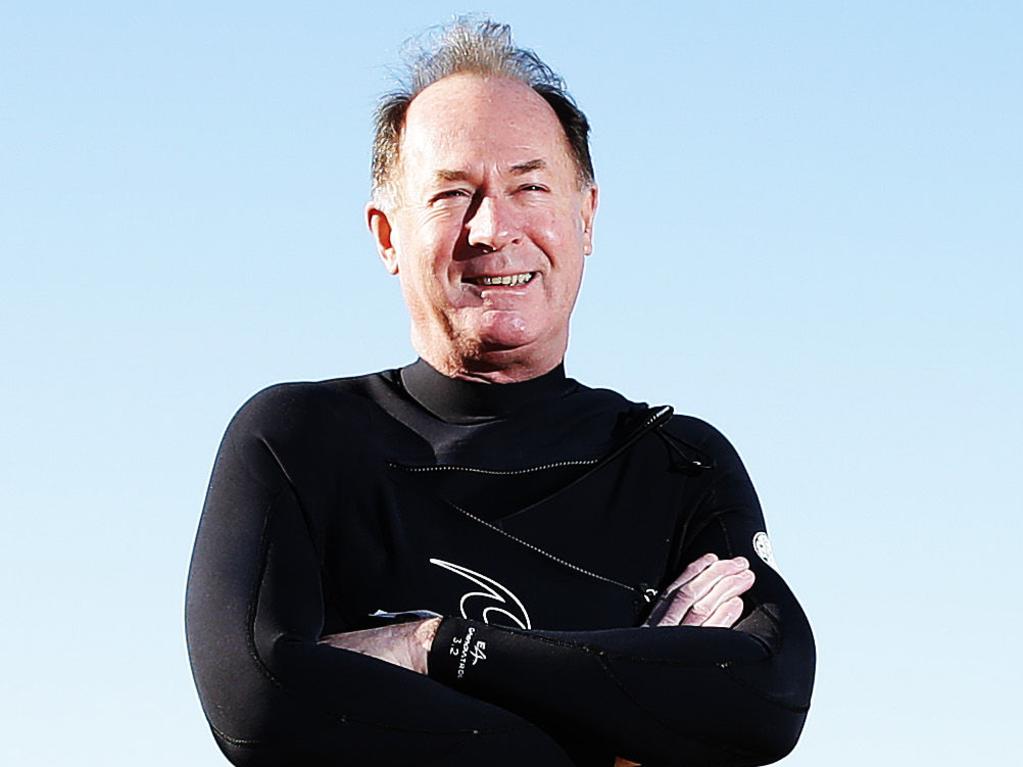


To join the conversation, please log in. Don't have an account? Register
Join the conversation, you are commenting as Logout